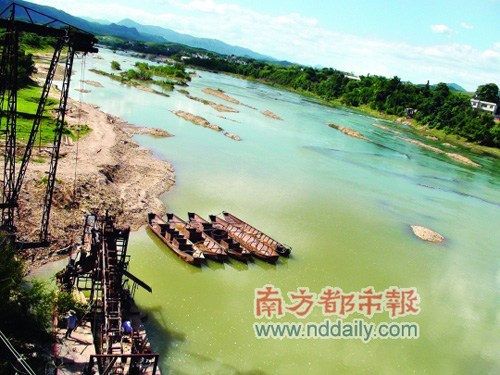Cancer haunts village near Zijin
Villages living near China's biggest gold mine, Zijin Mountain in southeast China's Fujian Province - which shocked the country with a massive pollution incident this July - say they are experiencing grave damage to their health.
 |
|
Cancer haunts village near Zijin.[File photo] |
Residents in Fujian's Bitian Village told yesterday's Southern Morning Post that they used to have idyllic homes nestled among green mountains. From time to time, they would collect some gold sand from local Tingjiang River for extra income.
But that changed 10 years ago when the Zijin mining group began to expand.
Forty people in the village of 1,300 got cancer in the past decade, and 35 of them died. Most were in their 30s.
The nearby village of Yueyangpian has also been haunted by a range of cancers. There are now more than 60 cancer patients in the village. Almost everyone who has died in recent years was killed by cancer, the report said.
Residents near Zijin Mountain accused the mine of discharging heavy metal into their drinking water, but their voice was largely ignored until July 3, when a toxic spill from the mine polluted Tingjiang River, killing tons of fish and attracting nationwide attention.
Villagers told the newspaper that Tingjiang used to be a broad, clear river rippling over smooth stones. But 40 days after the massive pollution, the river water is still green from the discharged copper.
The villagers previously relied on the river for drinking water.
But now even the most beautiful women hide their feet and legs in the hottest days because they appear to have rotted from the polluted water, the report said.
"It felt itchy even after merely touching the river water," said a villager named Zhong Shanlian. She said the dark green water would turn to dark red after heavy rains disturbed the residues.
Despite local environmental protection authority's promise that the river is now safe, villagers are walking miles to draw from mountain springs instead.
Villagers who can afford it buy bottled water for their daily use. "Local radio station repeats again and again that the river is safe, but none of us believe it," a villager said.
 0
0 






